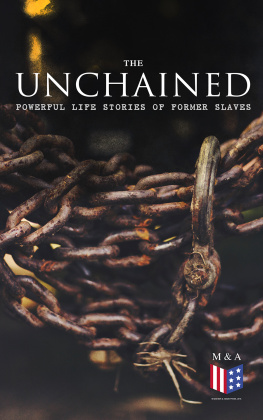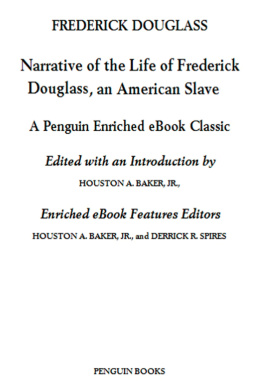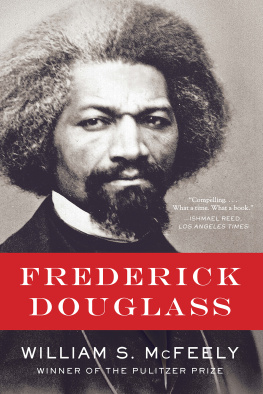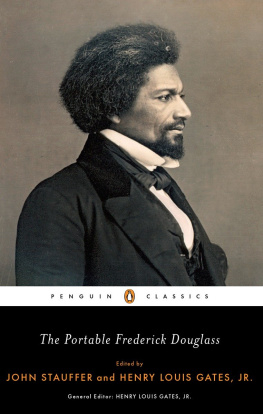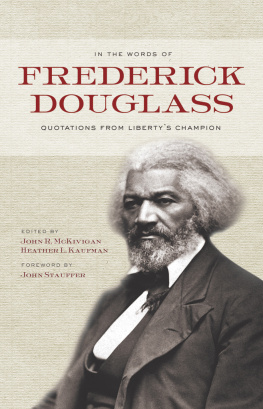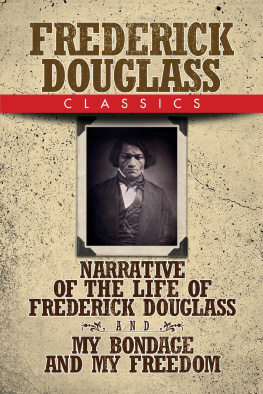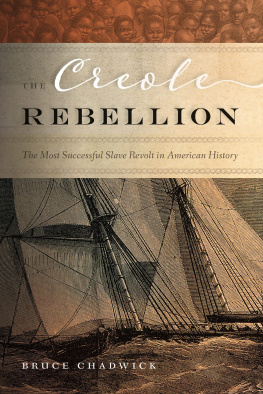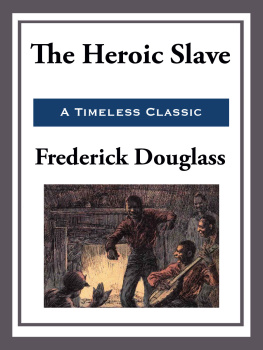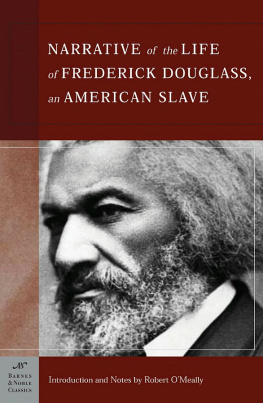THE HEROIC SLAVE
FREDERICK DOUGLASS
The Heroic Slave
A CULTURAL AND CRITICAL EDITION
Edited by
ROBERT S. LEVINE,
JOHN STAUFFER, AND
JOHN R. McKIVIGAN

Published with assistance from the National Historical Publications and Records Commission.
Published with assistance from the Louis Stern Memorial Fund.
Copyright 2015 by Yale University. All rights reserved.
This book may not be reproduced, in whole or in part, including illustrations, in any form (beyond that copying permitted by Sections 107 and 108 of the U.S. Copyright Law and except by reviewers for the public press), without written permission from the publishers.
Yale University Press books may be purchased in quantity for educational, business, or promotional use. For information, please e-mail (U.K. office).
Printed in the United States of America.
Library of Congress Cataloging-in-Publication Data
Douglass, Frederick, 18181895.
The heroic slave / Frederick Douglass ; a cultural and critical edition ; edited by Robert S. Levine, John Stauffer, and John R. McKivigan.
pages cm
Includes bibliographical references.
ISBN 978-0-300-18462-4 (pbk. : alk. paper) 1. Washington, MadisonFiction. 2. SlavesUnited StatesFiction. 3. Creole (Brig)Fiction. 4. Slave insurrectionsUnited StatesHistory19th centuryFiction. 5. MutinyUnited StatesHistory19th centuryFiction 6. Douglass, Frederick, 18181895 Heroic slave. I. Levine, Robert S. (Robert Steven), 1953 editor. II. Stauffer, John, 1965 editor. III. McKivigan, John R., 1949 editor. IV. Title.
PS1549.D66H47 2015
813'.3dc23 2014029869
A catalogue record for this book is available from the British Library.
This paper meets the requirements of ANSI/NISO Z39.481992 (Permanence of Paper).
10 9 8 7 6 5 4 3 2 1

Contents
Acknowledgments
For their assistance with documents and images, we would like to thank the Harvard University librarians Emily Bell (in Government Documents), Gregory Eow (Widener Library), and Peter Accardo (Houghton Library); the University of Maryland librarian Patricia Herron; and the knowledgeable staff at the Library of Congress. For their helpful suggestions along the way, we are grateful to Celeste-Marie Bernier, Deborah Cunningham, David Brion Davis, Henry Louis Gates, Jr., Howard Jones, Jim Oakes, Robert Paquette, Manisha Sinha, Robert Stepto, and Zoe Trodd. Offering crucial assistance with the text of The Heroic Slave, which was developed at the Frederick Douglass Papers at Indiana UniversityPurdue University Indianapolis, were Eamonn Brandon, Kate Burzlaff, James A. Hanna, and Rebecca Pattillo. Their work was supported by the National Historical Publications and Records Commission and the Indiana University School of Liberal Arts at Indianapolis. Robert S. Levine did much of his work on the edition while a Guggenheim Fellow, and he is grateful for the support of the Guggenheim Foundation. For their encouragement and advice, we are pleased to thank Sarah Miller, Heather Gold, and Margaret Otzel, our editors at Yale University Press. Our thanks as well to the Presss anonymous readers and to our skillful copy editor, Kip Keller.
Introduction
On 25 October 1841, the slave ship Creole left Richmond, Virginia, for New Orleans, the largest slave-trading market in North America. The brig carried 13 sailors and crew, 6 white passengers, numerous boxes of tobacco, and 135 slaves, worth about $100,000 (around $3 million in 2014 currency). Eight days later, as the Creole sailed through the northern Bahamas, 19 slaves rose up in revolt. Within a few hours they had taken control of the ship and forced a crewman to sail the brig to the Bahamas. They put into port on New Providence at Nassau, the largest settlement in the Bahamas, populated chiefly by blacks who had been freed by Great Britains 1833 Emancipation Act. The Creole reached Nassau on 9 November. The mutineers appealed to the British authorities, who within a week had freed the 116 slaves not participating in the rebellion, but detained the mutineers; in March 1842, they, too, were freed. The rebellion was comparatively civil: 1 crewman and 2 slaves were killed. Taking into account the numbers liberated versus those killed, it was one of the most successful slave revolts in North America.
Twelve years after the rebellion, Frederick Douglass published Douglass then serialized the novella in March 1853 in his newspaper, Frederick Douglass Paper. His only work of fiction, The Heroic Slave is one of the earliest examples of African American fiction, and it is part of an American canon that was profoundly shaped by the historical fiction of Sir Walter Scott, James Fenimore Cooper, Catharine Maria Sedgwick, Nathaniel Hawthorne, and many others. The Creole rebellion not only was important in American history and politics, but also had an impact on Douglasss career, moving him toward a more radical position on the uses of violence to achieve black freedom. In The Heroic Slave, Douglass addressed the abolitionist movement, the trans-Atlantic history of slavery, interracial friendship, black leadership, and the relationship between journalism, fiction, and history. With his skillful use of setting, point of view, and stylized theatrical dialogue, Douglass also offered a rousing good read, making one almost lament that this was his only work of fiction. It is not surprising that over the past thirty years, The Heroic Slave has emerged as an essential text in the nineteenth-century American literary canon. This cultural and critical edition provides, for the first time, an authoritative text of The Heroic Slave, along with primary and secondary materials that will help readers explore the novellas historical, biographical, and literary contexts.
The Creole mutiny electrified the nation and helped escalate sectional tensions over slavery. Southerners (and some northerners) were outraged that British authorities chose to free U.S. slaves, especially
Additionally fueling southern fury was the decision by the U.S. Supreme Court just a few months before the Creole rebellion to liberate 54 African slaves who, having been illegally imported to Cuba, mutinied on the Spanish slaver Amistad before drifting into Long Island Sound. The leaders of the rebellion were jailed in Connecticut, and between 1839 and 1841 became celebrities of sorts as they were interviewed in their cells and then involved in court trials that made them sympathetic to many northerners. The charismatic leader of the rebellion, Cinqu, a Mendi village leader from West Africa, helped make the Amistad a cause clbre in the United States and abroad. The black abolitionist Robert Purvis argued that Cinqu helped inspire the leader of the Creole rebellion (see the Purvis selection in
The Creole mutiny underscored for southern planters that their peculiar institution was under siege. Although they produced two-thirds of the worlds cotton and were the wealthiest Americans, they nevertheless felt deeply threatened by the swift rise of antislavery sentiment throughout the New World. For millennia, slavery had been an almost unquestioned institution, recognized as a byproduct of civilization. When the United States was founded, slavery was legal everywhere in the New World. But in little more than two generations, the northern states and most of Central and South America had emancipated their slaves. Southern slave owners increasingly saw themselves as living on an island of slavery in a growing sea of freedom, and it horrified them.
Next page

